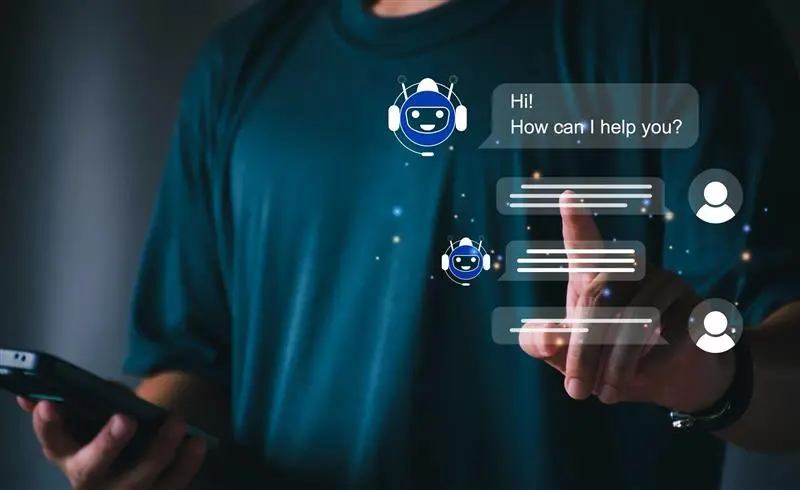How AI-Powered Chatbots Are Changing Customer Support Workflows

Introduction
Customer support has always been the backbone of any successful business. It’s where trust is built, loyalty is maintained, and problems are solved. But as customer expectations continue to evolve in today’s digital-first world, traditional support models are struggling to keep up. Customers no longer want to wait in queues, repeat their issues to multiple agents, or navigate slow ticketing systems. They expect quick, accurate, and 24/7 responses — and that’s where AI-powered chatbots come into play.
Artificial Intelligence (AI) has transformed customer service from a reactive function to a proactive, intelligent, and data-driven system. AI-powered chatbots are now capable of understanding natural language, recognizing emotions, and delivering personalized responses at scale. They are not just answering FAQs — they’re reshaping the very workflows of customer support teams, helping businesses reduce costs, improve efficiency, and deliver better experiences.
Let’s explore how AI-powered chatbots are redefining customer support workflows and what it means for modern businesses.
1. Automating Repetitive Tasks
A major pain point for customer support teams is the overwhelming volume of repetitive queries. Common questions like “Where is my order?”, “How can I reset my password?”, or “What are your business hours?” consume a large portion of an agent’s time.
AI-powered chatbots automate these repetitive tasks by handling such routine inquiries instantly. With Natural Language Processing (NLP) and machine learning, chatbots can interpret customer intent and provide accurate responses in seconds. They can also pull real-time information from databases — for example, checking order status or updating account details.
By automating repetitive work, chatbots allow support agents to focus on more complex and valuable interactions. This not only improves efficiency but also boosts employee satisfaction, as agents spend less time on monotonous tasks and more time solving meaningful problems.
2. Delivering 24/7 Customer Support
In a globalized economy, customers expect support at all hours, regardless of time zones or holidays. Hiring around-the-clock human support teams can be costly and logistically challenging. AI chatbots eliminate this limitation by offering 24/7 assistance.
A chatbot never sleeps. Whether it’s midnight or a weekend, it can handle thousands of conversations simultaneously. Customers can get instant answers without waiting for a live agent to come online. For businesses, this means improved response times, greater accessibility, and a significant enhancement in customer satisfaction scores.
This “always-on” support capability has become a competitive advantage. Customers are more likely to return to brands that respond promptly and consistently, and chatbots make that reliability possible.
3. Seamless Integration with Human Agents
AI chatbots aren’t designed to replace human agents entirely — they complement them. The smartest customer support workflows today use a hybrid model, where AI handles simple queries, and human agents step in for more complex or emotional interactions.
When a chatbot identifies a question it cannot handle, it automatically transfers the conversation to a human agent. Crucially, this transition is seamless — the agent receives the full conversation history, so the customer doesn’t have to repeat the issue. This integration minimizes frustration, reduces response time, and creates a smooth, continuous experience for the user.
In this model, chatbots act as the first line of defense, filtering and categorizing issues so that human support staff can focus on high-priority tickets — improving both workflow efficiency and service quality.
4. Personalization and Context-Awareness
Gone are the days of robotic, scripted responses. AI-powered chatbots now leverage customer data and machine learning to offer personalized experiences. By accessing past interactions, purchase history, and user preferences, chatbots can tailor their responses to individual customers.
For instance, if a returning customer asks about product recommendations, the chatbot can analyze their past orders and suggest complementary items. If a user had a previous complaint, the chatbot can acknowledge it and offer proactive support.
This personalization transforms customer support into a more human-like interaction, fostering trust and engagement. Moreover, AI can adapt its tone and style based on the customer’s mood — being empathetic during complaints and cheerful during casual inquiries — making conversations more natural and customer-centric.
5. Data Collection and Real-Time Insights
Every conversation with a chatbot generates valuable data. Unlike traditional systems that often lose context or fail to record nuances, AI-powered chatbots capture detailed insights from each interaction.
Businesses can use this data to:
- Identify recurring issues or FAQs
- Track customer sentiment and satisfaction
- Monitor response quality
- Predict future trends and service needs
These insights allow customer support teams to continuously optimize their workflows. For example, if chatbots detect an increase in specific product-related complaints, businesses can address the root cause proactively. Similarly, analytics can highlight areas where customers are dropping off, helping improve user experience.
In short, chatbots don’t just support customers — they support business intelligence.
6. Cost Reduction and Operational Efficiency
AI-powered chatbots significantly reduce operational costs while increasing service capacity. A single chatbot can handle the workload of dozens of agents, managing thousands of interactions concurrently without fatigue or overtime pay.
According to various industry studies, businesses can cut customer service costs by 30% or more with effective chatbot integration. The savings come from reduced staffing needs, shorter resolution times, and decreased error rates.
Additionally, AI systems are highly scalable. During peak seasons — like holidays or sales campaigns — businesses can easily handle surges in inquiries without needing to hire temporary staff. The chatbot’s ability to manage high volumes efficiently ensures smooth customer experiences even under pressure.
7. Enhancing Agent Productivity and Job Satisfaction
AI doesn’t replace human agents — it empowers them. By offloading repetitive and time-consuming tasks, chatbots free up agents to handle more meaningful, complex, and emotionally nuanced conversations.
This shift improves employee morale and job satisfaction. Agents become problem-solvers rather than task executors. They can focus on areas where human empathy, creativity, and negotiation skills are required — such as conflict resolution or customer retention.
Moreover, AI tools can assist agents in real-time by suggesting responses, pulling relevant data, or summarizing customer history — effectively becoming a digital assistant that enhances agent performance.
8. Enabling Proactive Support
Traditional customer support is reactive — teams wait for customers to reach out with problems. AI chatbots are changing that dynamic through proactive assistance.
By analyzing behavioral data and user patterns, chatbots can anticipate issues before they occur. For example:
- If a customer struggles with a checkout process, the chatbot can pop up offering help.
- If a service outage affects users, the chatbot can proactively notify them before they raise a complaint.
- If a warranty is about to expire, it can remind customers to renew or upgrade.
This proactive support builds customer confidence and reduces the number of incoming tickets. It also strengthens brand reputation by showing customers that the company is attentive and responsive even before problems arise.
9. Multichannel Consistency
Today’s customers use multiple platforms — websites, mobile apps, WhatsApp, Facebook Messenger, and more — to interact with brands. Managing support across all these channels can be challenging.
AI-powered chatbots solve this by providing consistent experiences across multiple touchpoints. Whether a customer contacts the brand through a social media message or a website chatbox, the AI maintains context, ensuring uniform tone and continuity.
This omnichannel presence streamlines workflows for support teams, allowing them to manage all interactions from a centralized system. It also prevents message duplication and ensures no query goes unanswered.
10. Continuous Learning and Improvement
The more a chatbot interacts, the smarter it becomes. AI chatbots continuously learn from past conversations to enhance their accuracy, vocabulary, and problem-solving ability. With advancements in machine learning, these systems can adapt to new scenarios without constant human reprogramming.
This self-learning capability ensures that customer support workflows evolve naturally over time — becoming more efficient, accurate, and aligned with changing customer needs. Businesses benefit from sustainable performance improvements without the need for extensive retraining or restructuring.
Conclusion
AI-powered chatbots have moved far beyond being simple conversation tools — they’re now strategic assets reshaping the entire customer support workflow. They automate routine tasks, provide 24/7 assistance, personalize interactions, deliver real-time data insights, and work hand-in-hand with human agents to enhance customer experience.
For businesses, this transformation brings measurable benefits: reduced costs, faster resolutions, higher customer satisfaction, and improved agent productivity. For customers, it means instant, accurate, and meaningful support whenever and wherever they need it.
As AI continues to evolve with technologies like Generative AI and advanced NLP, the potential for chatbots will only grow. The future of customer support is not human versus machine — it’s a powerful collaboration where AI handles efficiency and humans deliver empathy. Together, they create a customer experience that is smarter, faster, and more personal than ever before.
Table of content
- Introduction
- Automating Repetitive Tasks
- Delivering 24/7 Customer Support
- Seamless Integration with Human Agents
- Personalization and Context-Awareness
- Data Collection and Real-Time Insights
- Cost Reduction and Operational Efficiency
- Enhancing Agent Productivity and Job Satisfaction
- Enabling Proactive Support
- Multichannel Consistency
- Continuous Learning and Improvement
- Conclusion










